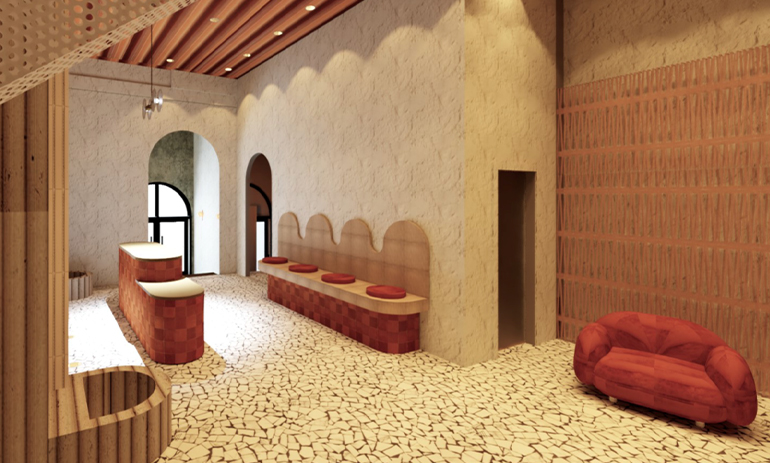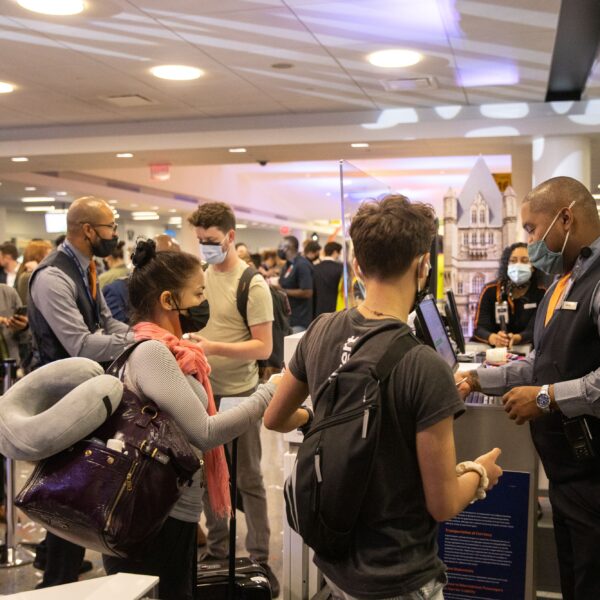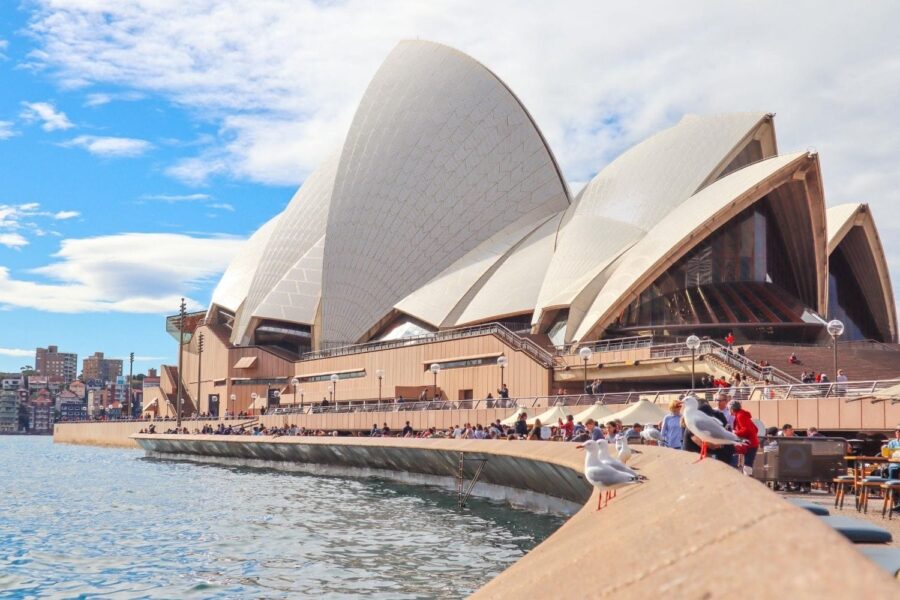The B Corp travel company is partnering with Drifter Hospitality Group to open 15 hotels across Australia and New Zealand over the next four years.
Branching out into the sustainable accommodation space isn’t a new idea for Intrepid Travel, it’s something the world’s largest purpose-led adventure travel brand has been talking about for almost 15 years.
But it took the “travel pause” brought on by the global pandemic to give leaders in the business the time and space they needed to work through making it happen.
Now, Intrepid Travel is set to launch a series of hybrid hotels, accommodation which offers flexible room options, at the end of next year. They will be branded “Drifter – an Intrepid Hotel” and will be delivered as a partnership between Intrepid and the Drifter Hospitality Group.
Drifter Hospitality Group (DHG) is led by Barrenjoey investment banker Hugh Stephenson, New Zealand tourism entrepreneur Ryan Sanders and marketing creative Josh Hunt.
Sarah Clark, managing director of Intrepid Hotels, told Pro Bono News that Stephenson and Hunt had been working on the idea for Drifter hotels for a couple of years. They brought the idea to Intrepid’s attention and, in a case of perfect timing, the small-tour operator agreed to a wider conversation around branching out into accommodation.
“A lot of our work will be with DHG’s Ryan Sanders who has worked with us for a number of years through his Haka tourism group. He brings the accommodation experience to Drifter and we bring the sustainability experience,” she says.
Clark says that the Drifter hotels will be aimed at the millennial market but go right through to the baby boomers. People, she says, who don’t want a traditional hostel experience but don’t want a stale hotel experience, either.
“The hybrid offering of Drifter is exciting. You can pay for a private suite, which could be $250 a night, or take a room in a shared dorm with ensuite facilities, which might be $50 a night,” she says.
“You can have a more premium experience that’s still [financially] accessible. The hotels will also have a big community focus as well as offer great food and beverage and wellness experiences. We’ll also be looking at how to mix travellers with locals so travellers get a really great local experience.”
Investment is needed to bring the vision to life
Overseen by Barrenjoey’s Stephenson, investment meetings kicked off early this month with a goal of raising $75 million to deliver the first phase.
That first phase will be to launch Drifter properties in Auckland and Wellington followed by a property on the east coast of Australia.
Clark says they are in due diligence at the moment with properties in Sydney, Melbourne and Brisbane.
“So it’ll be one of those cities that will be the first Drifter hotel in Australia,” she explains.
“We’re also repositioning Haka Lodges into the Drifter brand, and the first one of those will be launching in Christchurch towards the end of next year.”
Keeping it local, keeping it sustainable
By first launching in Australia and New Zealand, Intrepid is reiterating the importance of the short-haul and domestic market both from a climate perspective as well as the travel industry’s post-COVID recovery.
“Domestic travel will continue to boom for at least the next five-plus years. People will go international but they’ll also take more trips at home,” Clark says.
“But we’re a global company. Our customers aren’t just from Australia and New Zealand, they’re from the US, Canada, UK and Europe so we will definitely look at how to [eventually] implement our accommodation experience into other countries.”
As a brand Intrepid Travel is synonymous with sustainability, and this new venture is set to be no different.
“Ultimately, we’re B Corp certified so we’d love to get a certification like B Corp across all of our Drifter properties because, for us, that’s really the ultimate way of looking at the supply chain, looking at your people as well as the environmental side of things,” Clark says.
As she oversees this new venture for Intrepid, Clark says she and her team are approaching the launch of these properties with an ultimate set of goals.
“We want to be carbon neutral, we want to be B Corp certified, we want to have great local furnishings and sustainable ethical products across the board,” she says.
“And that includes our food and beverages. We want to know where our food waste is going and will work with OzHarvest and KiwiHarvest to make sure food waste is being distributed in the right way.”
Helping the COVID-hit tourism industry
As Intrepid and Drifter look at building out the business’ accommodation vertical they are also working to support those hardest hit by the pandemic.
“The [accommodation] market in major cities has been fractured due to the lack of customers moving through hotels, especially in that corporate hotel space. And so there are opportunities to buy real estate from people who want to get out of that space,” Clark says.
“But [to be clear] we’re not buying the business from them. Our business is Drifter and so we’d be looking to reposition those properties into a Drifter style, and run it under the Drifter Intrepid brand.”
Clark describes the new venture as exciting and a call to action for those consumers who want to make sure that how they spend their money has a positive impact on the planet.
“People are going to fly, they’re going to stay in hotels and they’re going to move around and they want to consciously choose to do it in the best way that they can. And so that’s what we want to try and implement and introduce to the market,” she says.
“There’s already some great sustainable properties out there but the more that come out, the more that others come on board and, hopefully, make changes to their properties. Buyer behaviour will make others change the way they do things, which has always got to be a win-win.”







Leave a Comment